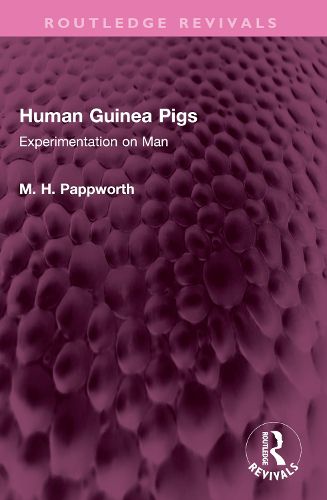Readings Newsletter
Become a Readings Member to make your shopping experience even easier.
Sign in or sign up for free!
You’re not far away from qualifying for FREE standard shipping within Australia
You’ve qualified for FREE standard shipping within Australia
The cart is loading…






First published in 1967, Human Guinea Pigs is a report by a consultant physician on the implications of medical research on both the medical profession and on the men, women and children who are the subjects of medical experiments. It suggests that there are limits to the permissibility of experiments on humans. It points out how it has become a common occurrence for medical investigators to take risks with patients of which the patients themselves are frequently unaware, and to submit them to mental and physical distress and possible hazards which in no way are necessitated by or have connection with the treatment of the disease from which are suffering. The author describes a number of experiments which, in his opinion, raise important problems. In his view, medical research must go on, but there must be acknowledged and observed safeguards for patients. This book will be of interest to students of medicine, ethics, law, politics and social work.
$9.00 standard shipping within Australia
FREE standard shipping within Australia for orders over $100.00
Express & International shipping calculated at checkout
First published in 1967, Human Guinea Pigs is a report by a consultant physician on the implications of medical research on both the medical profession and on the men, women and children who are the subjects of medical experiments. It suggests that there are limits to the permissibility of experiments on humans. It points out how it has become a common occurrence for medical investigators to take risks with patients of which the patients themselves are frequently unaware, and to submit them to mental and physical distress and possible hazards which in no way are necessitated by or have connection with the treatment of the disease from which are suffering. The author describes a number of experiments which, in his opinion, raise important problems. In his view, medical research must go on, but there must be acknowledged and observed safeguards for patients. This book will be of interest to students of medicine, ethics, law, politics and social work.